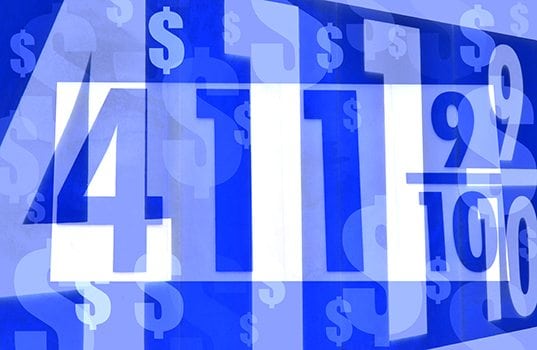A newly formed coalition of business owners and employees, consumers and advocates today launched the Fed Up at the Pump campaign to educate and inform California motorists about a state-agency mandated gas and diesel price hike that will have a negative impact on the economy and hardworking families. Starting Jan. 1, 2015, Californians will pay an estimated 15 cents or more per gallon of gas as a result of a “hidden tax” that was created by the Brown Administration without consumer input or legislative review.
“California needs to find a way to address global warming and climate change in a way that doesn’t hurt those who are already struggling to get by,” said Ron Van De Pol, president of family-owned Van De Pol Enterprises, Inc., a coalition member that sells wholesale fuel to service stations and agricultural businesses in the Central Valley. “When gas prices go up on New Year’s Day my customers need to know it’s because of a state tax that our Governor wanted to slip past them without their knowledge.”
The goal of the Fed Up at the Pump campaign is to put a stop to this hidden, regressive gas fee – created by the California Air Resources Board as part of its “Fuels Under the Cap” regulations (AB 32) – before it goes into effect because it will disproportionately affect lower-income Californians and there is no guarantee the expected $2 Billion generated in the first year will go to programs that reduce greenhouse gas emissions. In fact, some lawmakers have already introduced legislation to spend those funds on High Speed Rail and affordable housing.
“Increasing the cost of gas will affect the price of goods and services that rely on oil and gas for transportation,” said Betty Plowman, California Construction Trucking Association’s northern membership director. “This includes food and water, energy and electricity, public transportation, fire protection and police patrols. This impending fee will add another burden to an already devastated region, hitting Central and San Joaquin Valley’s disadvantaged, farmers, workers and families the hardest.”
The Fed Up at the Pump campaign, which is statewide in scope, will first focus its efforts on the Central and San Joaquin Valleys.
“Not only will this gas tax impact consumers at the pump, but it will have a deeper impact on agriculture, the industry that drives the economy of the Valley and the state,” said Bruce Blodgett, San Joaquin County Farm Bureau’s executive director. “Adding a new gas fee when our region is crippled by drought doesn’t add up to smart business for California.”
The campaign will encourage calls-to-action to halt the January gas price hike before it damages California’s fragile economy and hurts millions of hard working Californians even more. The campaign will allow consumers to send letters to the Governor through a text message campaign that will be advertised at independent service stations through the Central Valley. The campaign will employ radio and online advertising, social networking and media to reach millions of Californians to ask them to tell the Governor to “Back Off.”
Californians Already Pay the Highest Gas Prices in the Country
According to the Board of Equalization, California consumers currently pay 71 cents per gallon in taxes every time they fill up their tanks, which is the highest gas tax rate in the country. The average American pays less—about 50 cents per gallon.
And in a recent analysis by Bloomberg writer Megan McArdle, if everyone in the U.S. switched to an electric vehicle tomorrow it would only reduce carbon emissions by 3.6 percent. Even less would be reduced if only California made the switch to all electric vehicles.
About Fed up at the Pump
Fed Up at the Pump is a newly formed grassroots coalition of business owners and their employees, consumers and advocates who are concerned about the negative impact a hidden, regressive gas fee will have on California.
The coalition’s goal is to halt a state-agency mandated gas fee – created by the California Air Resources Board “Fuels Under the Cap” regulations – before it goes into effect on Jan. 1, 2015, because it will disproportionately affect lower-income Californians and there is no guarantee that the $2 Billion generated will go to programs that reduce greenhouse gas emissions.









